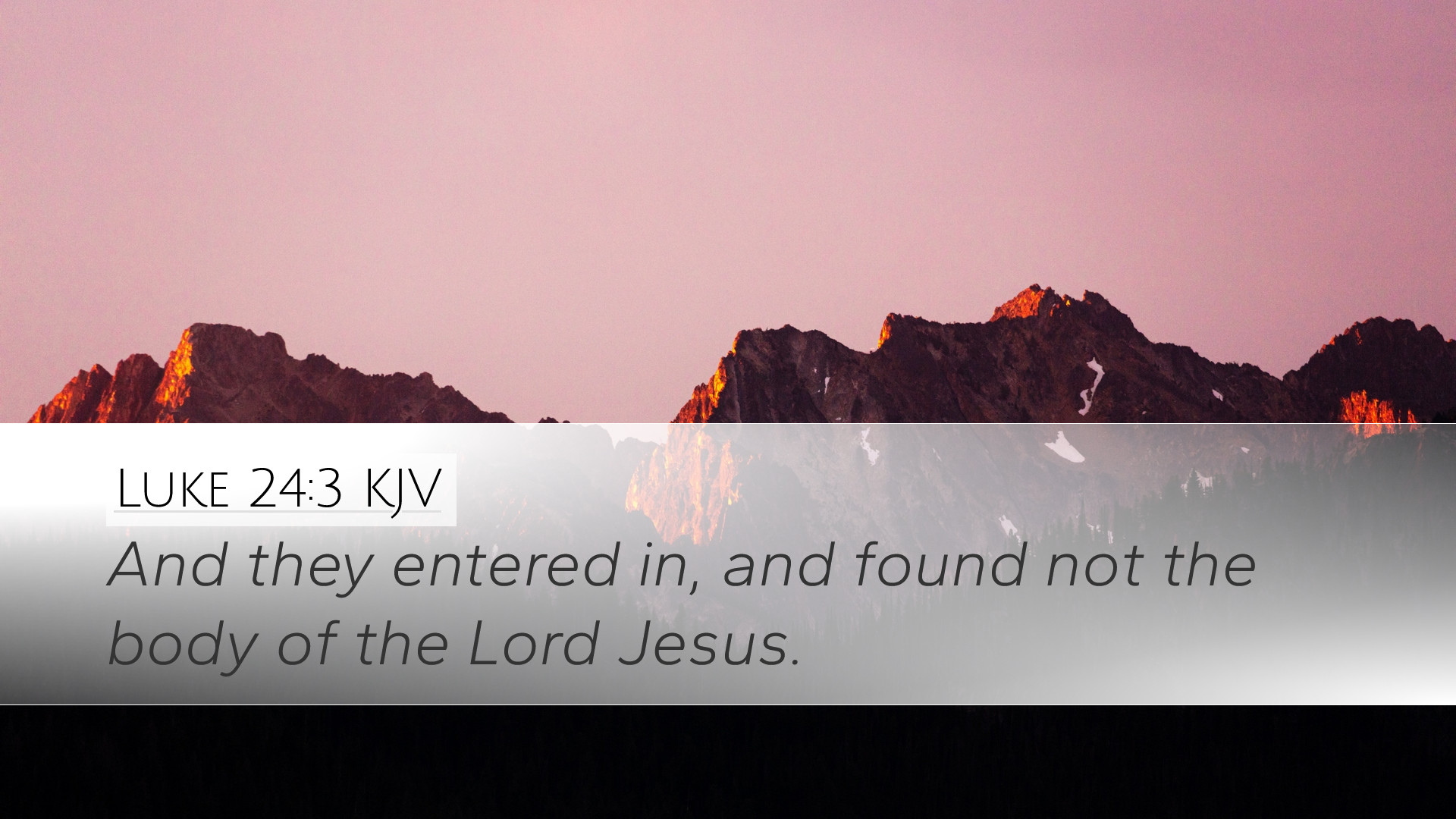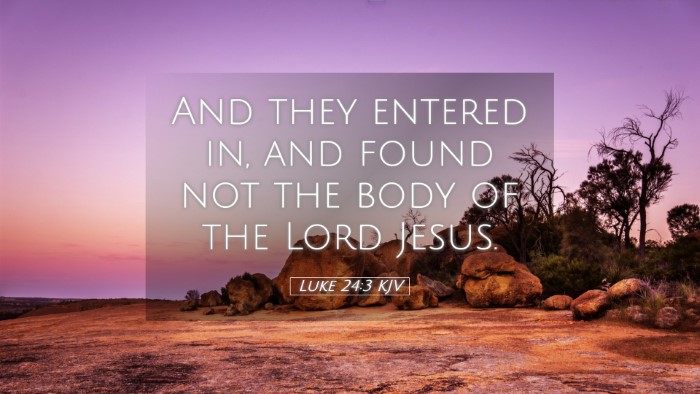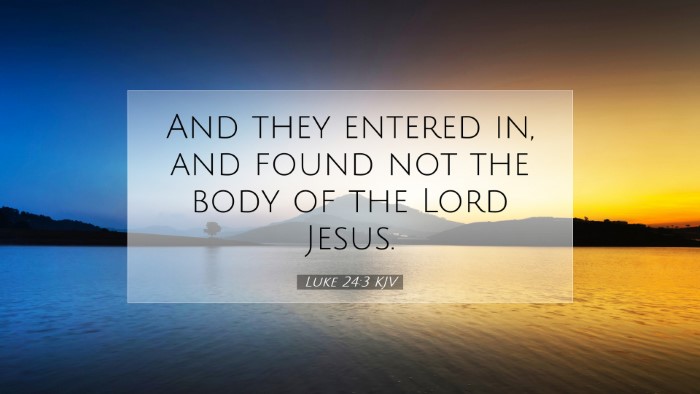Commentary on Luke 24:3
Verse: "And when they entered, they found not the body of the Lord Jesus."
This verse captures a pivotal moment in the narrative of Christ's resurrection, encapsulating the shock and perplexity of those who came to the tomb expecting to find the deceased body of Jesus. In examining this verse, we draw insights from several public domain commentaries to deepen our understanding of its significance.
Contextual Background
Luke 24:3 follows the events of the crucifixion and burial of Jesus. The women who came to the tomb were motivated by love, devotion, and the Jewish customs surrounding burials. They were not only followers but also witnesses to His death, which adds to the emotional weight of their discovery.
Historical Perspective
According to Matthew Henry, the resurrection account offered by Luke serves as a fulfillment of prophetic scripture, revealing God’s ultimate plan for salvation. This finding of the empty tomb signals the transition from despair to hope, altering the course of history for believers.
Insights from Commentaries
-
Matthew Henry:
Henry notes the astonishment of the women; they came prepared with spices, a sign of mourning, indicating their expectation of finding Jesus’ body. The absence of Jesus not only represents a miracle but also highlights the fulfillment of Christ's own predictions regarding His resurrection. Henry emphasizes the faithfulness of God in aligning events with His purpose.
-
Albert Barnes:
Barnes elaborates on the emotional state of the women, who, upon entering the sepulcher, were met not with despair but with an empty tomb. He posits that their fear and uncertainty were transformed into the foundation of the Christian faith—the risen Christ. Barnes draws attention to the role of women in the resurrection narrative, marking their loyalty and crucial role in affirming the resurrection truth.
-
Adam Clarke:
Clarke comments on the implications of the empty tomb, suggesting that it serves as a divine declaration to humanity regarding the victory over death. He stresses that the empty tomb should evoke a deep reflection on the nature of life after death and the promise of resurrection for all believers. Clarke's emphasis on the angelic presence at the tomb further illustrates the divine orchestration of this event.
Theological Reflections
The various commentaries converge on certain theological themes that have profound implications for faith and doctrine:
-
Resurrection as Reality:
The empty tomb is a cornerstone of Christian faith. The reality of the resurrection is not just a theological tenet but is pivotal for the hope and existence of the Church.
-
Faith and Doubt:
The initial fear and doubt experienced by the women reflect a universal human experience. This discourse serves as a reminder that faith often coexists with uncertainty as individuals grapple with their understanding of divine truths.
-
Role of Women:
The prominence of women in the resurrection narrative signals a radical inclusivity in the early Christian community, showcasing their vital role in proclaiming the gospel message.
Practical Applications
The implications of Luke 24:3 extend beyond theological study into practical discipleship. Pastors, students, and scholars can draw several applications:
- Embrace of Hope: Just as the women transitioned from mourning to joy, believers are called to embrace hope amidst despair, trusting in the promises of God.
- Witnessing to Others: The women’s immediate response to share the news emphasizes the call for all believers to be witnesses of the resurrection light in their communities.
- Understanding Bereavement: This passage can serve as pastoral guidance on navigating grief, encouraging the understanding of life after death through the lens of resurrection hope.
- Courage in Faith: Encouraging believers to step forward in faith, especially when confronted with doubt, is essential. Believers are empowered by the resurrection to overcome fear.
Conclusion
Luke 24:3 serves not only as a record of a historical moment but also as a transformative declaration of hope that impacts the believer's life. The combined insights from Matthew Henry, Albert Barnes, and Adam Clarke enhance our understanding of the narrative's depth and theological richness. As such, this verse invites continuous reflection and inspires renewed faith in the resurrection of Jesus Christ, which is the foundation of Christian belief and the hope of eternal life.


